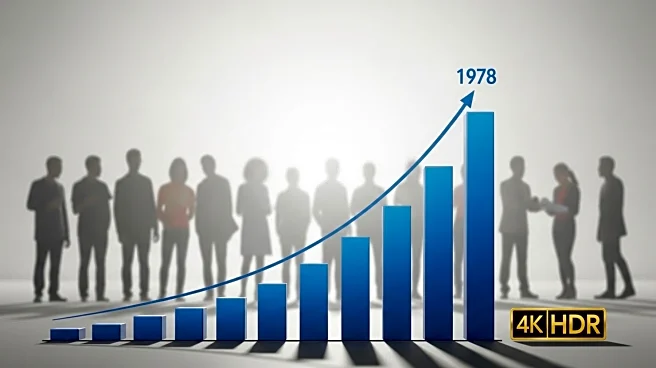What's Happening?
A recent report by the Economic Policy Institute (EPI) reveals that CEO compensation at 350 of the largest publicly traded U.S. companies has surged by 1,094% since 1978. In 2024, the average CEO earned $22.98 million, marking a 6% increase from the previous year. This compensation is now 281 times greater than that of the average worker, defined by EPI as full-time employees in production and non-supervisory roles within the same industries. The report attributes this disparity to the growing prevalence of stock-based compensation, which links executive pay to company performance in the public market. Additionally, CEOs have gained more influence over their pay structures, allowing for higher negotiated compensation packages.
Why It's Important?
The significant rise in CEO compensation compared to average worker salaries underscores a growing economic inequality within the U.S. This disparity can have broad implications for social and economic stability, potentially fueling public discontent and calls for policy reform. The shift towards stock-based compensation aligns executive interests with shareholder value but may also incentivize short-term decision-making at the expense of long-term company health. The widening gap between executive and worker pay could impact employee morale and productivity, as well as influence public debates on wage policies and corporate governance.
What's Next?
The findings of the EPI report may prompt discussions among policymakers, business leaders, and labor organizations about potential reforms to address wage inequality. Possible measures could include revisiting executive compensation structures, enhancing transparency in pay practices, or implementing policies to ensure fairer distribution of corporate profits. Stakeholders may also explore ways to strengthen worker representation in corporate decision-making processes to balance the interests of executives and employees.
Beyond the Headlines
The trend of increasing CEO compensation raises ethical questions about corporate responsibility and the role of business in society. As companies face pressure to demonstrate social responsibility, the disparity in pay could become a focal point for activists and investors advocating for more equitable business practices. Long-term, this issue may influence cultural perceptions of corporate leadership and the expectations placed on executives to contribute positively to societal well-being.









